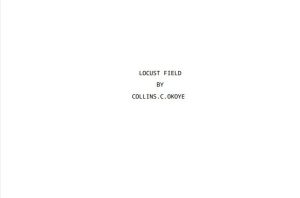
IF you’re like me, you try your very best to render a verdict on a much anticipated film only after a period of gestation, during which one ideally samples a diversity of authoritative opinion to inform one’s thinking.
Such was the case with Shaka King’s Judas and the Black Messiah, which recounts the revolutionary agenda of Fred Hampton, the Chairman of the Illinois chapter of the Black Panther party, and his betrayal by William O’Neal, a close confidante and FBI informant during the 60s civil rights movement.
While ostensibly a political biopic, the narrative is framed through the lens of a traditional crime thriller; pitting the unscrupulous J. Edgar Hoover led FBI against the intrepid Hampton and his dogged Comrades.
This framing lends the film a propulsive pace and an accessible platform to illuminate Hampton’s radical ideas from: capitalism versus socialism to fighting police brutality with violence, and forming a rainbow coalition to effectively combat governmental neglect of the proletariat.
The film features stellar performances from the entire cast, with Daniel Kaluuya, of Get Out fame, a standout with his fiery and arresting portrayal of Hampton. Dominique Fishback, who plays Hampton’s love interest and fellow ideological sparring partner, embodies the film’s empathetic core, revealing Hampton’s vulnerable underbelly. LaKeith Stanfield puts in an appropriately slithery performance as the film’s Judas, pupeteered by his FBI handler Roy Mitchell, played by the always magnetic Jesse Plemons.
The jazz and funk soundtrack is brilliant, accentuating the radical energy of the times, and King is uncompromising in his depiction of the violence to which Black Panther members were subject and in which they trafficked as a response.
All in all, the film succeeds as both a gripping crime thriller and a damning and topical indictment of government complicity in the brutal suppression of civil rights.
Despite the foregoing, and the mostly laudatory critical reaction to the film, I came across some reviews excoriating it as a cynical Hollywood appropriation of radicalism, failing, among other things, to capture the full depravity of white supremacy.
To this I say, uhh? I can’t think of a more honest depiction of the sanguinary struggle for social justice that manages to convey the complexities and contradictions of its advocates and detractors.
How one walks away with the above critique from a film that carefully eschews any illusion about the thuggery and bigotry of Hoover and his law enforcement subordinates is beyond me.
Have we really reached the point where a mainstream film that is self-evidently Woke, and far from painfully or cynically so I might add, must nevertheless be subject to a Spanish Inquisition for the crime of being balanced?
Has Woke critical theory become so infected by a puritanical strain as to render it devoid of a sweet spot?
Do people realise that Hollywood wouldn’t have made this sort of film years ago, and the fact that it exists in a deluge of critical adulation only to be subject to the charge of being insufficiently Woke is a sure sign of significant progress?
Clearly the goal posts of racial and social progress have been shunted beyond the scope of attainability.
I hope that the noisy minority for whom this constitutes a reality remain just that.
By,
C.C Okoye





